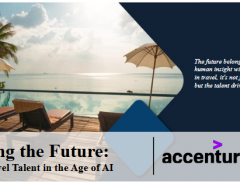“Inclusion and fairness in the workplace… is simply not the right thing to do; it’s the smart thing to do”, said Alexis Herman, the US politician and former secretary of Labor. We live in a world where diversity and inclusion are of critical importance to connect with people, respect them, impact their mindsets and to build an acceptable as well as a supportive environment to live and work.
If inclusion is to be accomplished in the true sense, LGBTQ+ inclusions is important, both from humanitarian as well as business point of view. LGBT+ inclusion has a visible impact on multiple areas of business, right from brand image, talent acquisition, retention, financial performance to customer orientation and corporate governance.
It has been noticed that several organizations fear the reputation and revenue setback they will have to bear if they explicitly take a stand with respect to the LGBT+ community. It is a myth. FICCI had launched a BCG report in 2019 that analysed ‘Why fast-growing companies from emerging markets are embracing LGBT+ inclusion’. The report analysed the revenue growth, earnings before interest and taxes, and international revenue and the key findings showed that many companies, headquartered in emerging markets, incur no economic penalty for being LGBT+ inclusive. In fact, they are more likely to grow faster.
The analysis found a direct relationship between a company’s support for LGBT+ inclusion and its ability to connect with global markets and supply chains more effectively. It also highlighted that several high-potential emerging-market companies, that explicitly protect LGBT+ employees against discrimination, are based in India. Also, interestingly, family-run companies are 1.8 times more likely to support LGBT+ inclusion as compared to non-family-run companies. This is quite inspiring!
As companies strive to establish a strong global foothold, recruiting employees based on merit, irrespective of their gender, and creating a safe working community for them where they feel valued and involved, will pave the way for the brand globally.
As per the World Bank data, 0.6% to 3.8 % of the workforce in India is from the LGBT community. This is neither real time data nor appropriate census. We use these numbers to chart a programmatic roadmap. A pilot study of World Bank also reflects that discrimination against LGBT people in India could be costing the country’s economy up to $32 billion a year as lost economic output. In fact, about 92% of transgenders are highly deprived of the right to participate in any economic activity and even qualified ones are refused jobs (as per a 2018 study on transgenders by NHRC).
With just nine years remaining to meet the Sustainable Development Goals (SDGs), the clock is ticking. A recent business primer issued by Open for Business highlights 20 SDG targets that are highly relevant to companies’ actions to enhance LGBT+ inclusion while contributing to the realisation of Agenda 2030. It covers poverty, health, education, gender equality, decent work, inequality and more. Advancing participation of vulnerable sections in the mainstream can certainly act as an important catalyst for bridging the related gaps.
As for the next steps, there is a need to implement few actions within organisations. Some of these include:
- Building supportive company policies and processes
- Incorporating LGBT+ inclusion into recruitment and talent initiatives
- Launching and supporting strong internal employee resource groups
- Developing an inclusive cultural mindset, with trainings and senior leader engagement
- Supporting LGBT+ inclusion
- Promoting learning programs to help effective learning, retention
- Empathetic communication at all levels is also important to create more awareness about LGBTQ+ rights. This will ensure a non-discriminatory approach towards accepting the LGBTQI+ as their true selves
- Also, corporates must come forward to showcase their growth story as an LGBTQ+ ally to inspire others
As an apex Industry association of India, FICCI has been encouraging corporates to foster an inclusive work strategy in their respective enterprises with a non-discriminatory approach at all levels and beyond workplace, including procurement practices, supply chain management or even facilitating livelihood opportunities for LGBTQ+.
FICCI has a dedicated Task Force on Diversity & Inclusions where LGBTQ + inclusions is one of the key agendas besides gender parity and empowering persons with disability. Under this task force, we have been organizing awareness sessions, thematic webinars and consultations with the Government, multilateral agencies, corporates, NGOs, and other stakeholders on Diversity & Inclusion-centric issues.
I would like to reiterate that inclusion has economic benefits and people should see that. By including members of the LGBTQ+ community in society, by giving them respect, we stand to enhance productivity, reduce mental health issues, and see a higher contribution to the GDP. We will have to put in concerted efforts across all spheres of the society to include, skill, upskill and counsel the aspirational LGBTQ+ community so that they are not deprived of any economic opportunities. As India Inc gets ready to be more inclusive for LGBTQ+ people, FICCI stands committed to spearhead focused endeavours in this area.
We, at FICCI, hope that you and your loved ones are keeping well and are staying safe. While we are currently undergoing difficult times, we shall come out of this very soon.
The author is Secretary General, FICCI. This article has previously been published on Autofintechs.com
Link to the published article: https://autofintechs.com/lgbtq-inclusion-has-huge-economic-benefits/





